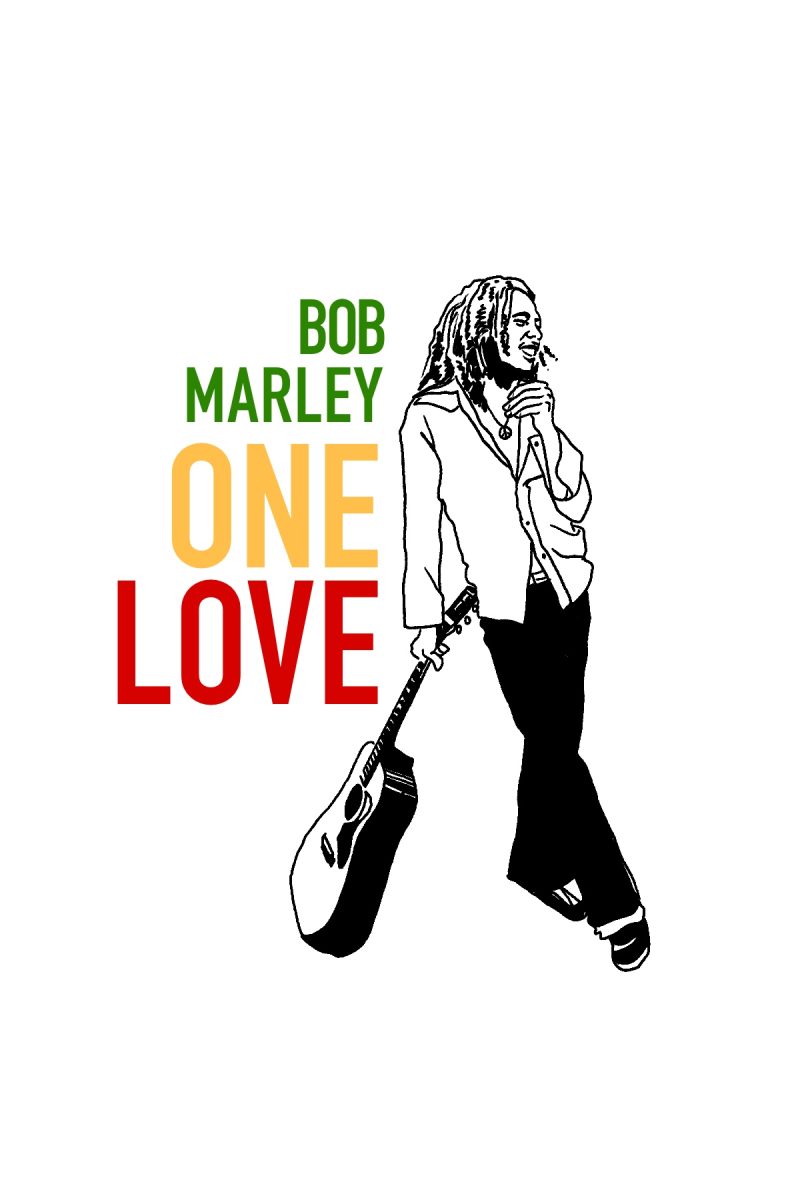

A director can never go wrong with a biopic about a musician, because they know they are getting at least one thing right — the soundtrack. The newest biopic to hit theaters was “Bob Marley: One Love.” Though the music and performances from leads Kingsley Ben-Adir and Lashana Lynch were great, the film itself reduced Marley’s enormous legacy to a film that left out the majority of his life and political activism.
“One Love” primarily focuses on Marley’s life from 1976, when an assassination attempt almost ended it, to 1978, when Marley and his band The Wailers recorded their ninth studio album, “Exodus,” and returned to Jamaica for the “One Love Peace Concert.” Along with scenes of recording this album and fantastic recreations of Marley’s live performances that feature his eccentric dancing and performance style, “One Love” spliced in scenes of Marley’s adolescence throughout the film. Telling the majority of Marley’s life through cryptic flashbacks was a poor choice and provided little information about how Marley became the spiritual legend he remains today.
The film did a great job of highlighting how Marley’s Rastafarian spirituality and Jamaican culture influenced his music, which inspired the world. This spirituality played into Ben-Adir’s dialogue, and quotes like “My life is not important to me. My life is for people. That I can be beneficial to a people,” were truly moving and illustrated Marley’s spirit.
Another thing “One Love” got right was Marley’s stage presence and style. An article in GQ explains that the musician’s Rastafarian faith provided him with a “profound sense of self. He knew who he was and what he was supposed to do and that spunky individuality spilled right over into his fashion sense,” which was showcased in “One Love” from Marley’s fitted suits to fitted jeans to stunning dreadlocks.
Additionally, Lashana Lynch’s role as Rita Marley was enormously impactful in the film. She tied Marley to his roots and childhood and made him realize that family had to be prioritized over music. During several scenes, Marley turns to violence, hitting Rita and throwing one of his closest friends to the floor. These scenes were important, showing a side of Marley that does not necessarily mesh with his spirituality but makes him seem human through his errors.
Towards the end of the film, as Marley is grappling with his cancer diagnosis, Rita tells him, “Sometimes, the messenger has to become the message.” Although the live performances and recording sessions of “Exodus” show Marley becoming this message, many critical political aspects of his career are reduced to a montage before the end credits.
Moments such as Marley inviting two opposing political party leaders on stage during the “One Love Peace Concert” should have been a primary focus of the film, not recording sessions or flashbacks with little substance.
“One Love” was a fine movie with a soundtrack and performances that were destined to be spectacular. But in the end, the film will not be remarked upon as substantial because it took the wrong approach in telling the story of one of the most influential musicians in the world, highlighting Marley’s music and spirituality, but not his activism.













